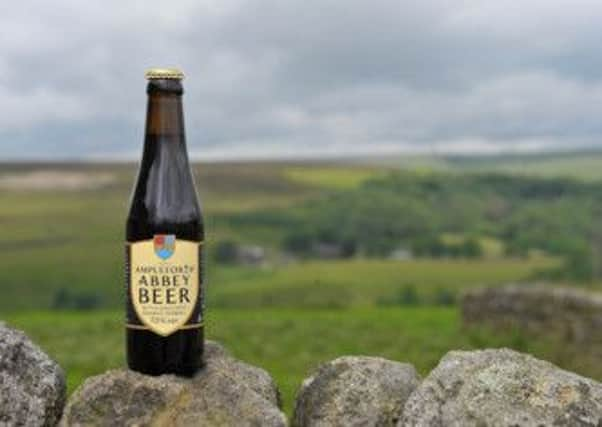Monks brew up success with their own beer


As well as strong sales, Ampleforth Abbey Beer was named Yorkshire’s Best Drink in the Deliciously Yorkshire Awards in 2012/13. It also received the Two Star Great Taste Award and was awarded silver in the International Beer Challenge.
It is sold in around 70 specialist and independent retailers throughout Yorkshire, branches of Booths supermarket, in local pubs and restaurants, online and in the Abbey Shop.
Advertisement
Hide AdAdvertisement
Hide AdAmpleforth’s brewing traditions date back to 1608 when a community of Benedictine monks fled England for the safety of France. Determined to make a living for themselves, they began brewing their native beer – “la biere anglaise”.
It was made with hops and barley, then double fermented for strength and a “champagne-like” sparkle.
In 1793, escaping the French Revolution, they fled back to England and eventually settled at Ampleforth in 1802, and built the Abbey.
Keen to revive the beer, in 2011 Ampleforth Abbey’s procurator, Father Wulstan Peterburs, travelled with Little Valley Brewery’s Dutch brewer Wim van der Spek to the Trappist breweries in the Low Countries – six in Belgium and one in the Netherlands – to study their recipes and methods. They came across a recipe at the monastery of Dieulouard near Nancy in Lorraine, where the English Benedictines settled when they fled to France, and this was adapted for Ampleforth Abbey Beer.
Advertisement
Hide AdAdvertisement
Hide AdLittle Valley Brewery, which brews all its beers using 100 per cent organic agricultural ingredients and soft Yorkshire water, began producing the revived Ampleforth Abbey Beer in 330ml bottles in 2012.
Ampleforth Abbey is the only working British monastery involved in the production of its own beer and its sales allow the abbey to make use of its assets to support the monastic community and charitable works.